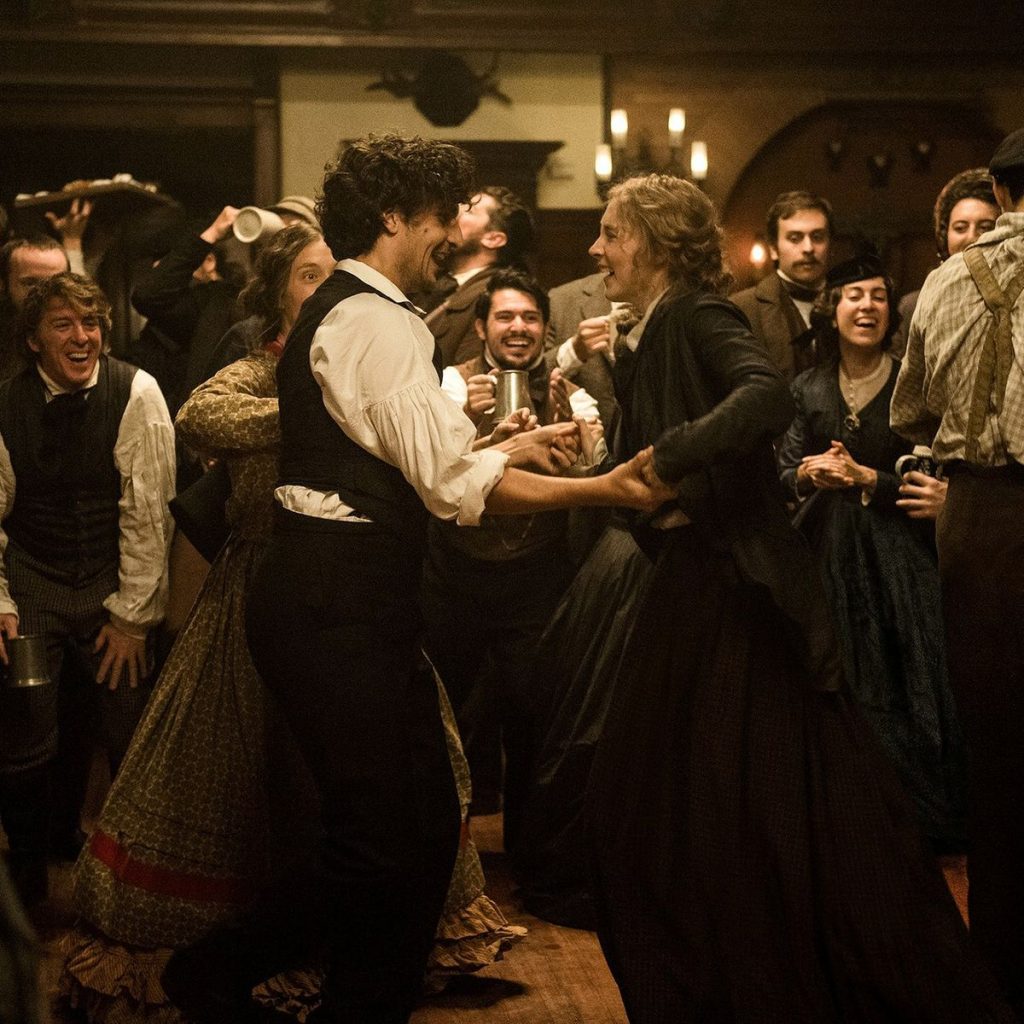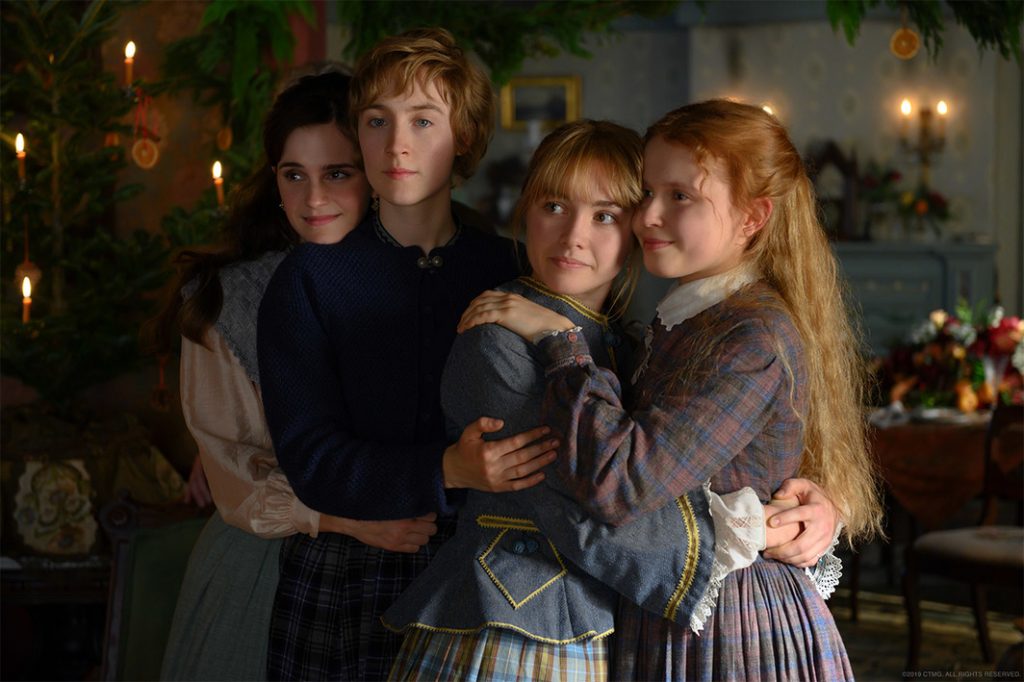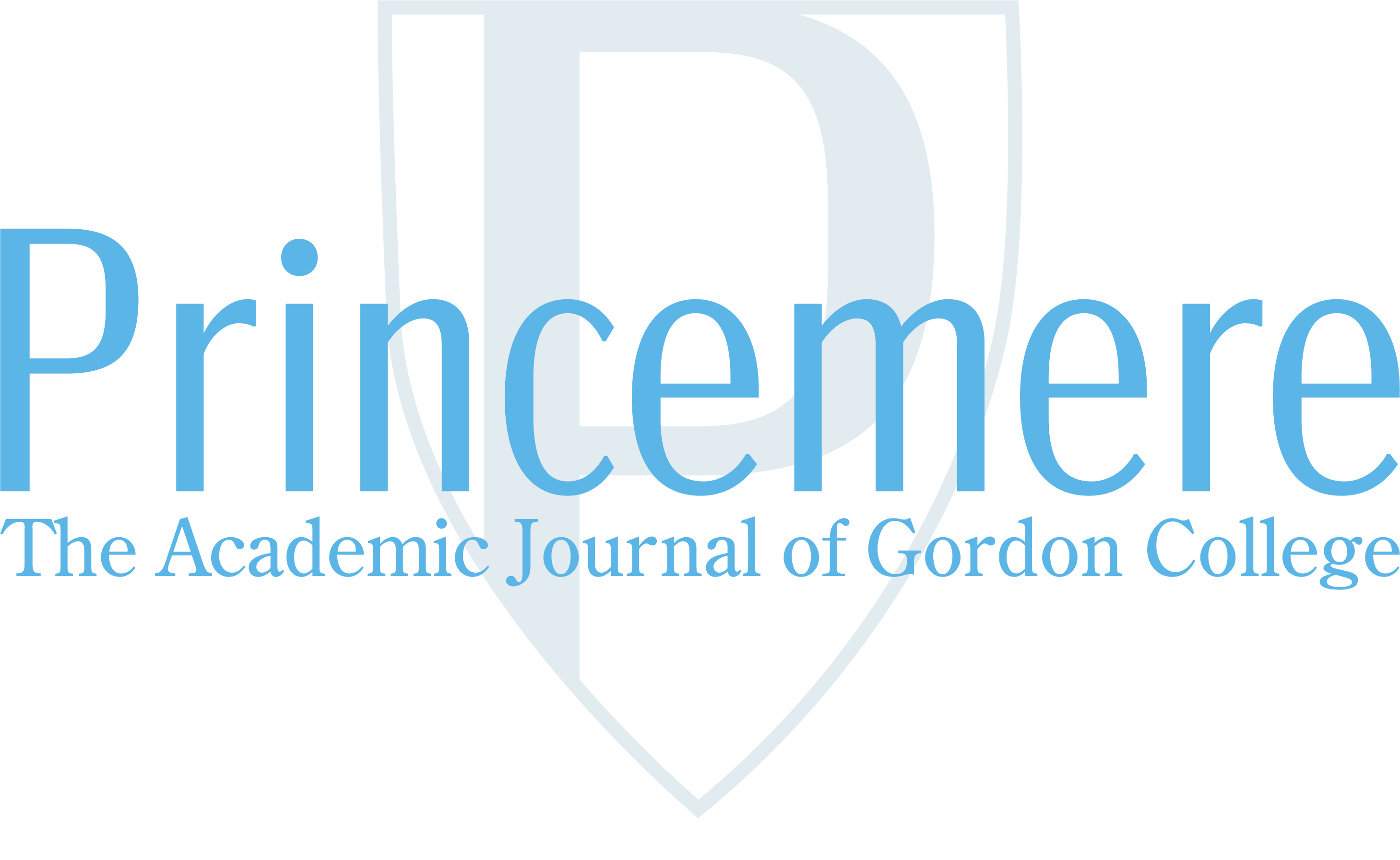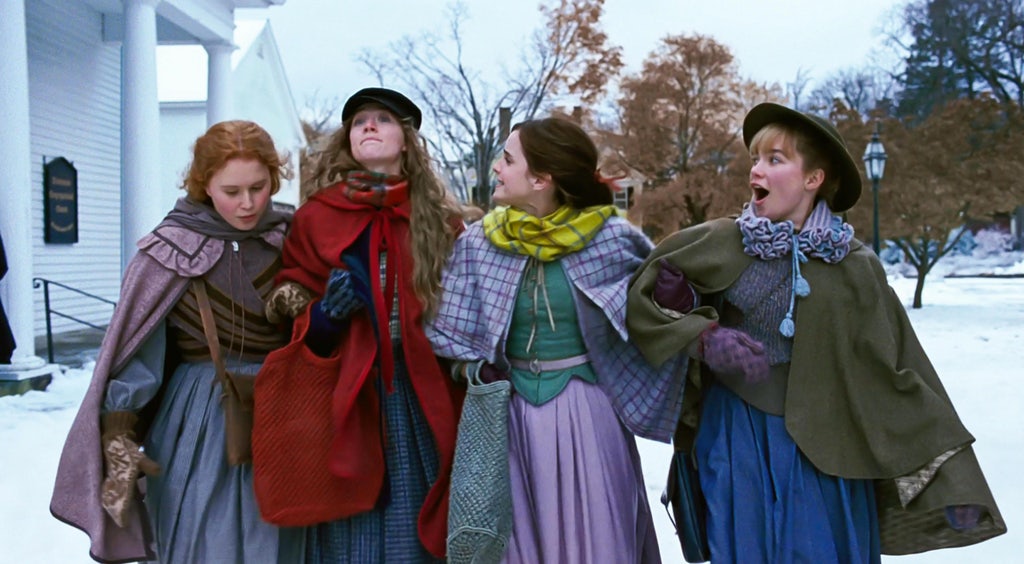In the past few decades, the word feminism has developed an extremely negative connotation in society. The reason for this is likely due to the meaning of the word shifting, at least for many, from that of equality to one of domination. However, despite this unfortunate association, true feminism is not about putting men down or boosting oneself up. A feminist is simply someone (a man or a woman) who stands up against male oppression and fights for women to be treated equally. When viewed this way, the view of feminism as an effort for female dominance falls away. True feminism involves a stripping away of our modern idea of the word. The Encyclopedia Britannica defines feminism as the belief in social, economic, and political equality of the sexes” (1). In order to understand feminist criticism theory, one must first understand feminism in these terms of desiring equality and respect.
However, these days, feminism is often seen as nothing more than a highly progressive women’s movement often commandeered by unlikeable, “over-the-top” women. That said, this harmful stereotype places all feminists together within this one extreme. Felicity Grace writes in her article, “Do theories of the State Need Feminism?” “There is a worrying tendency within politics to reduce feminism to the category of an interest group” (10). Those who understand real feminism understand that it is not just women who should fight for feminism, but every person who believes in equality. In fact, since feminism is essentially about freedom from oppression, its true focus is essentially centered on human rights, rather than merely women’s rights. Sonja K Foss explains the components of feminism by stating, “Although many basic definitions of feminism focus on achieving various objectives for women, many feminists do not believe that feminism should be focused exclusively on women. Many people—not just women—are oppressed, so many feminists want liberation for everyone” (Rhetorical Criticism 142).
It is for this reason that the heart of feminism should be viewed for its virtue in upholding human dignity and fighting for the liberty of people everywhere. Essentially, feminism focused on love instead of domination fights against the idea of the oppressor and the oppressed, believing that no one person is better than another.
Sadly, the concept of gender equality has only truly been accepted recently, when one considers the grand scheme of human history. Since ancient times, society has existed inside of what is undeniably a patriarchal system, insisting that a woman’s place is in the home as a dutiful mother and wife. While the true heart of feminism doesn’t fight against the idea of a woman’s maternal nature, it does challenge the idea that a home is the only place where a woman should belong. Such a belief, however, has resulted in a long uphill battle throughout history. For centuries, women were forbidden to extend their role as something other than a homemaker, and therefore unable to enter the public sphere. Even young women, who do not yet have a husband or children to care for, were subjected to focus entirely on becoming a worthy match for their future husbands. In essence, the prospect of marriage was the sole focus of their young adult lives, and most often the choice of who to wed was not theirs to make.
Mary Wollenstencraft (1759-1797) a renowned English writer and philosopher, was one of the few women given a voice to at the time. She writes in her book, “A Vindication of the Rights of Women,” “I do not wish [women] to have power over men; but over themselves” (35).
Unfortunately, it would be more than a century before the majority of women would be given such a right. Truly, it is not until our modern day that women are treated equally to men, and even still, some feminist scholars and critics would argue that this is still not the case. However, modern feminism based on equality and not domination, can be seen much as a completion of the quest for liberty began by women hundreds of years ago. One can see this concept demonstrated through the 2019 film “Little Women” in which the film’s director, Greta Gerwig, fulfilled the feminist ambition that the author of the 1868 classic book, Louisa May Alcott was not fully unable to achieve due to the limitations placed upon her sex. Since the film comes a staggering 152 years years after the novel was written, the view of women has undeniably changed within this time. Therefore, the following question must be asked.
How does the 2019 film “Little Women” redefine the characters of the beloved classic in a way that disrupts the hegemonic perspectives common for the time period? This is an important question since the characters have undoubtedly been modernized– a fact that has resulted in much debate surrounding the adaptation.
In order to understand the importance of this point, one must understand the story of “Little Women” within the framework of the 19th century world in which it was written. The book’s author, Louisa May Alcott, wrote the book in largely an autobiographical form, depicting herself as Jo March and each of her sisters as the other March sisters. Just like Jo, Louisa was a writer who eventually got her book published, and just like Amy, Louisa’s sister Abigail was an artist who wished to travel abroad. However, the character of Meg, who was inspired by Louisa’s sister Anna, believed in much more simple pursuits, choosing firstly to be a wife and mother. It can then be argued that Alcott understood the fact that not all women would be writers and artists hoping to change the world. Alcott also believed in the importance of marriage and motherhood, even if such was never her own path in life.
Instead, it is the diversity of the different sisters’ values and passions that is reflective of true womanhood. Amidst a time when women were encouraged to be merely domestic creatures, Alcott gave her characters an option to be something more.
The reason for this can be credited to Alcott’s own upbringing, in which her parents encouraged her dreams of publishing and even famously bought her a writing desk in which she later wrote “Little Women.” This was a very progressive move for the time, as encouraging women to pursue their own careers could interfere with the prospect of marriage. However, Alcott’s parents seemed to understand that a woman can be more than one thing at the same time— a fact that many others refused to accept at the time Moreover, Marmie, the March sister’s mother who is based off of Mrs. March, explains that while she hopes that her daughters get married and are happy in this way, there is no overwhelming pressure for them to do so if this is not their path. She instructs her daughters to, “Make this home happy, so that you may be fit for homes of your own, if they are offered you, and contented here if they are not. One thing remember, my girls. Mother is always ready to be your confidant, Father to be your friend, and both of us trust and hope that our daughters, whether married or single, will be the pride and comfort of our lives” (111). Here, we see the adult/guardian characters in this novel violating the expectations of the time that a woman must marry.
In the novel, Jo’s self-motivated, tomboyish nature and Amy’s ambitious dreams of creating and selling her own art, are much at odds with the prevalent ideals for the time which encouraged women to live a quiet, humble life, never chasing after their own desires. Jo says of her dreams near the beginning of the novel, “I’d have a stable full of Arabian steeds, rooms piled high with books, and I’d write out of a magic inkstand… I want to do something splendid before I go into my castle, something heroic or wonderful that won’t be forgotten after I’m dead…. I think I shall write books, and get rich and famous, that would suit me, so that is my favorite dream” (161). In fact, when the character of Laurie finally confesses his feelings for Jo, Jo denies him, insisting, “And you would hate my scribbling, and I couldn’t go without it and we would be unhappy” (406). Here, Jo confesses to Laurie that her own independent nature which allows her to write and have the freedom she so desires is more important to her than romance. In addition, the character of Amy intensely desires to be a famous artist, even going off to France in the hopes of pursuing this dream. She tells Laurie in a now famous quote, “I want to be great or nothing” (451).

Despite the way these two characters break gender norms, they each have their own heterosexual love stories and are married by the end of the novel. For many modern feminist readers and viewers of the 2019 film, this ending is disappointing. Many women had hoped to see these two ambitious women fully embrace their independent natures, choosing their careers over their romantic relationships. However, many critics have different points of view. Sarah Schutte writes in, “A Woman For All Ages,” “Today’s society has such a skewed view of feminism that we don’t understand Alcott’s wisdom. Often, readers who identify with Jo’s character at the book’s outset become outraged when she marries and begins to raise a family. They feel she “conformed” or “sold out.” But this is where they miss Alcott’s depth. She is showing us how Jo embraces the beauty of womanhood and learns about true freedom” (44). Such a decision is therefore reflective of the true historic origins of feminism which rests in a woman’s ability to balance both her passion and career with her domestic life.
However, the purpose of this essay is to explain how the 2019 film fully completed the 1868 book’s intent of promoting feminism. Therefore, there must be aspects of the film that fail to promote such an idea, and therefore required a revision of sorts as seen through the most recent adaptation. Indeed, there have been critics who, for years, have slandered the novel as something anti-feminist, though I argue that these critics fail to take note of the society in which Alcott wrote— that which is far different than our own. Still, to the modern reader, there are certain quotations which are, at the very least, questionable of true feminism. Particularly of note is the character of John Brooks, Meg’s husband, who repeatedly insists that a man’s work is of virtue while a woman’s is of domestic insignificance. In her article, “‘Little Women’: Alcott’s Civil War,” Judith Fetterley states, “But more important than the revelation that women’s work is ugly and degrading when done by men is the implication that women’s work is not real work. Before their marriage, John Brooke says to Meg, ‘You have only to wait, I am to do the work’” (26). In fact, the character of John Brooks is, to many modern readers, the prime example of misogyny and toxic masculinity that is so at odds with the feminism of characters like Jo and Amy. This can be seen soon after the marriage of John and Meg, in which Meg, in an attempt to impress her new husband, tries to make currant jelly, With a housewifely wish to see her store-room stocked” (218). However, Meg’s attempt ends in failure as the preserves do not congeal. When John returns with a dinner guest, Meg commands him to “Tell him I’m away– sick, dead anything” (221). Instead of comforting his frantic wife, John is angry with Meg for her failure, obviously having expected her to perform her domestic duties perfectly. In a later scene, the issue only worsens as Mammie instructs Meg how to handle arguments with her new husband in a way that, to modern readers, seems undeniably toxic. She tells Meg in chapter 28:
Be careful, very careful, not to wake this anger against yourself, for peace and happiness depend on keeping his respect. Watch yourself, be the first to ask pardon if you both err, and guard against the little piques, misunderstandings, and hasty words that often pave the way for bitter sorrow and regret. (Alcott 287).
This quotation, perhaps more than any other, directly works against the prevailing feminism seen through characters such as Jo and Amy. In essence, readers see that John’s happiness depends on Meg’s respect for him as well as her ability to apologize first in an argument, as she is supposed to be gentler in nature as a woman.
Another example of masculine hegemony in the novel can be seen in Mammie’s attempts to teach her daughters to curb their emotions and to have gentle, meek spirits. Emotions such as anger should, according to Mammie and the society of the time, be suppressed whenever possible. Such warnings were given mainly to young women in this era, as a soft, sweet disposition was considered a feminine trait and therefore worthy of admiration.
For many, however, the most troubling anti-feminist theme of the book rests in Jo (the book’s main icon of self-determination) giving up her writing in order to marry at the end of the novel. Jo recounts of her past life, “Yes I remember, but the life I wanted then seems selfish, lonely and cold to me now. I haven’t given up the hope that I may write a good book yet, but as I can wait and I’m sure it will be all the better for such experiences and illustrations as these” (541). Alcott’s message here seems clear. A life of domesticity is preferable to that of an independent career, and such seems to be the lesson learned by Jo at the end of the novel.

However, it can be argued that such a mindset is not entirely reflective of Alcott’s own worldview. In fact, her transcendentalist family was quite progressive in their view of woman’s rights, as alluded to earlier. In fact, Alcott’s family was made up of strong suffragists. Clare Bender writes, Alcott herself encouraged women to stand up for themselves and vote. She did this by encouraging women to register and by facilitating reading groups to raise awareness about the importance of voting (Gender Stereotyping in Little Women 150). In fact, Alcott boasts proudly in her journal of her role in her community, “I was the first woman to register my name as a voter” (150). Fascinatingly, Alcott also condemned the women around her of not wanting to vote, writing, “I gave them a good scolding and offered to drive the timid sheep to the fatal spot where they seemed to expect some awful doom” (141). Through evidence such as this, one can see that Alcott’s true views do not match with the character of John Brooks that she created. Therefore, readers can see that Alcott had no choice but to sprinkle in her feminist ideas amidst the dominating beliefs of her society.
Further evidence to back this point up can be seen in the writings of Charles Strickland, who writes of the time period and its collective view on the rights of women. Strickland explains, “It is evident that sentimentalists had little or no sympathy with the slogans of nineteenth-century feminism. The cause of women’s rights received no votes among most sentimental novelists, who held up passivity as an ideal and who regarded any imitation of masculine traits as a surrender of the woman’s claim to superior moral virtue” (Victorian Domesticity 10). Here, we see the unfortunate reality that the society in which Alcott lived was not yet ready for women to be independent and equal to men.
It is for this reason then that the 2019 adaptation of the book is so pivotal to the concept of female liberty which was begun by Alcott but not fully realized due to the limitations of the male-dominated, hegemonic world of the time.
Here, it can be argued that Greta Gerwig, the film’s director, understood Alcott’s vision and “completed” the feminist work for her in a time when such views are not only allowed but encouraged.
Through passion-filled, fast-paced dialogue, a more gentle approach to the character of John Brooks, and a particular desire to highlight the virtue of ambition and independence through the characters of Jo and Amy, Gerwig succeeds in both honoring the novel and modernizing it at the same time.
Gerwig says of the film in an interview with TIME magazine, It was a chance to address things that were so personal, and also to do something radical with [the book]. I think you have license with material that is beloved, because you can start with a common language” (1). Starting with a common language is exactly what Gerwig did, choosing to keep the beloved characteristics of her characters, while all at once challenging the dominant, patriarchal worldview of the time. Such a decision then disrupts the sexist ideology, while maintaining the integrity of the story.
For many, the most pivotal change from the novel to the 2019 film rested in the character of Amy. Throughout the novel and in many recent adaptations, Amy’s character was simple and two-dimensional. Many even considered her the villain of the story due to her baseless desire to marry rich. However, Gerwig gave Amy a certain, undeniable complexity— a desire both for love and independence that was not fully realized in the novel. In fact, when speaking to Laurie about love and marriage, she explains the reasons why she must marry a wealthy man. The monologue that follows is truly reflective of the time period— bold and sharply worded— the quote, powerfully delivered by Florence Pugh, stands as a testament to the injustice that women faced at the time. Such an addition to the story, then, is believable within its framework but modern in its fiery language. Amy says,
I’m not a poet, I’m just a woman, and as a woman there is no way for me to make my own money, not enough to earn a living or to support my family. If I had my own money, which I don’t, that money would belong to my husband the moment we got married and if we had children they would be his not mine, they would be his property, so don’t sit there and tell me that marriage is not an economic proposition because it is. It may not be for you but it certainly is for me (“Marriage is an Economic Proposition” Movieclips, Youtube 2:09-2:39)
One can imagine that this was much how Alcott felt about her position and those of her fellow women in 19th century America. However, such language used back in this time would have likely been mocked and scorned. Indeed, Alcott could have completely lost her credibility for such a passionate speech. Instead, Alcott chose to allude to her character’s feelings about marriage in far more subtle ways that, I argue, lends itself to a certain unfinished plea.
In addition, the dialogue used throughout the 2019 film is much more modern and fast-paced than that of the novel. Gerwig did this on purpose with the intention of reflecting the true conversations among sisters and women in general. These women, who speak in witty remarks and fast-paced retorts, therefore show an irrefutable level of emotional intelligence. Though the types of conversations that women have are undeniably different than those of men, Gerwig argues that they should be valued for this reason. In fact, the almost hard-to-keep-up-with dialogue challenges viewers to consider the ways in which the women of the past are not so different than modern women.

Finally, to many, the most impactful change that speaks to the modern feminism of these historical characters, is in Jo’s character who, in the film seems fully conscious of the male-centric world around her. Even still, she is unintimidated as she debates with her publisher how much of her profits she will hand over. This is a realistic scene that is missing from the book, but nonetheless matches Jo March’s sharp and fiery nature that is portrayed by Alcott. The most pivotal scene in the film for Jo, and perhaps for feminism as well, is in Jo’s final monologue. Reflecting on the role of women at the time, Jo shares her frustrations. In the movie as well as the book, it is Jo who is arguably the most “feminist” character. At the time of this scene, however, Jo finds herself in a state of loneliness at having chosen such independence, much at the cost of romantic happiness. Nonetheless, she laments her society’s view of a woman’s role, saying,
Women have minds and souls as well as just hearts, and they’ve got ambition and talent as well as just beauty. And I’m so sick of people saying that love is all a woman is fit for. I’m so sick of it. But— I’m so lonely. (“I’m So Sick Of It” Sony Pictures Entertainment, Youtube 0:01-0.37 )
Here, Gerwig bridges the gap through this added dialogue between Jo’s desire for an independent career and her desire for love and a family. Though a gut-wrenching personal monologue by the story’s most beloved character, the audience comes to see the virtue to both personal ambition as well as romantic companionship. Again, it is possible to see Alcott identifying with Jo’s passionate plea, especially considering the fact that Jo’s character is based off of herself.
Through the 2019 film, viewers can see the power of modern feminism within a historical context. They can imagine Alcott smiling down upon the film based on her well-loved story, happy to see it standing as a testament for women to be whatever and whomever they wish to be. Through characters like Amy and Jo portrayed in the film— those who demonstrated the ambition and talent referred to in Jo’s monologue— viewers gain a deeper insight into true feminism. To say that the story as a whole does not include elements of feminism would be to mistake the heart of Alcott— that which wholly believed in the many different dimensions of womanhood.
While Amy and Jo chose to settle down and get married, these decisions weren’t made out of peer pressure or out of any social obligation. Instead, Amy and Jo married because they wanted to, accepting womanhood as it ought to be accepted— as something whole, beautiful and diverse.

Laura Caron
Laura is currently a Junior at Gordon. Passionate about the written word, she enjoys expressing herself through writing both professionally and creatively. In her free time, she enjoys reading, hanging out with friends and being active. As editor-and-chief of the Princemere, she is focused on creating a space that encourages everyone to find the joy within writing and the art of storytelling.

